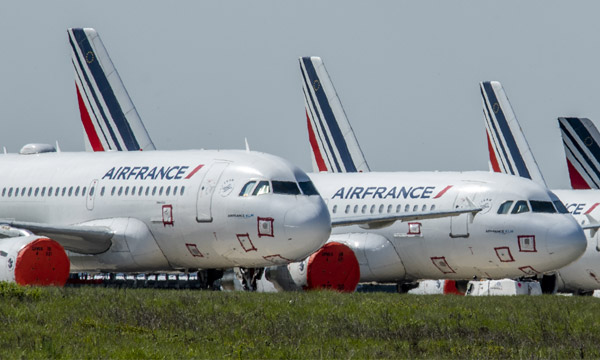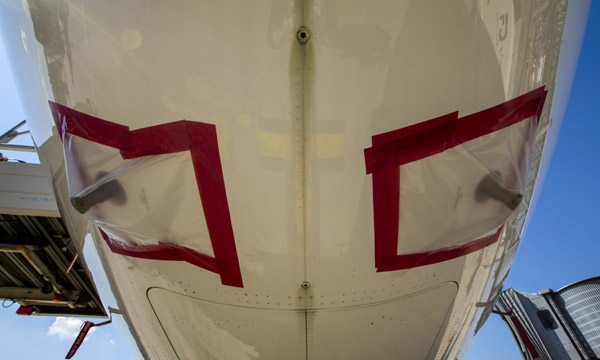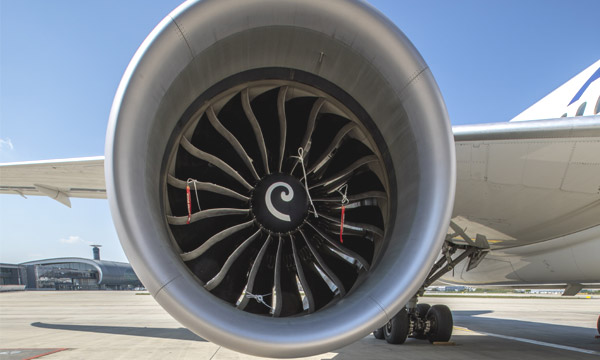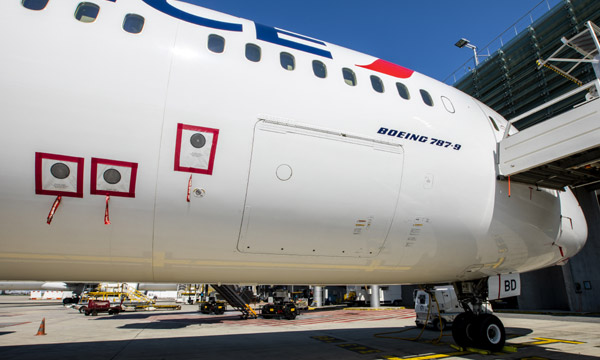How Air France manages its grounded fleet before recovery time |
| Emilie Drab |
|
|
07 MAY 2020 | 899 words
|
 |
© Air France |
|
|
|
If airlines are at the forefront of the pandemic crisis, airline MROs must also adapt to this unprecedented situation in which the majority of the world fleet is grounded. Heavy maintenance have logically greatly reduced, however there is work to be done to maintain the portion of the fleet that remains in flight but also to maintain in operational condition the aircraft which remains on the ground. In the case of Air France, 180 aircraft are immobilized on a fleet of 224 aircraft. For Air France Industries, this requires keeping a thousand mechanics in the field (out of the 8,000 employees in the division).
In accordance with the recommendations of manufacturers and authorities, Air France has in fact opted for "active storage" of these 180 aircraft, which correspond to immobilization for one to three months. "This allows us to keep a certain flexibility if we want to put an airplane back in flight and to control the costs associated with these operations," explains Géry Mortreux, Executive Vice President at Air France Industries KLM Engineering & Maintenance. But who says storage does not say abandonment, far from it.
This operation represents 150 hours of work per aircraft over the downtime. Part of it is represented by the protection of the aircraft: "we must apply protections around the openings, probes, different systems, to avoid the intrusion of foreign objects, especially insects", specifies Géry Mortreux.
 © Air France
© Air France
Unlike operators like Finnair (whose stock of wheel chocks was insufficient at the start of the shutdown), Air France Industries did not encounter any major shortage problem in protective equipment. "We were able to manage the fleet shutdown. We had just about everything in our own stocks and ordered for what we lacked or opted for alternative measures. The visible point is on the intake/exhaust covers of the engines: generally, there is a very identifiable red cover but sometimes we had to protect it by applying a plastic film. "
After these protection works, maintenance operations come. "We have regular lubrication and operating points for several systems that are usually used every day, including flight controls and things related to the wheels. We need to activate them regularly to prevent them from drying out or being damaged due to non-operation. In parallel, the teams intervene on "the risks of humidity, bacteria development, corrosion: we activate the drains, we install dehumidifiers, anti-corrosion protections on areas that are not painted ..."
Géry Mortreux also points out that the fuel tanks remain 10% or 20% full, again to avoid drying out of the seals and future leaks, but also because the engines must be turned on every week to avoid damage of several internal systems.
 © Air France
© Air France
Heavy maintenance on stand-by
Air France Industries has decided to limit its operations to essential tasks: support for aircraft in flight and storage. The first reason given is the protection of the teams on the ground. All the equipment necessary to comply with barrier gestures has been provided to them (masks, gloves, gels, wipes, etc.) and the organization has been adapted to "have teams that do not meet", with also an adaptation of the worling facilities. In addition, the group is very vigilant about the state of its cash flow. "We have stopped the big aircraft modification projects or the heavy checks, for health reasons but also to protect our cash flow in the short term", summarizes Géry Mortreux.
"On the other hand, when we have a slightly more precise vision of the pace of resumption of our flight program and now that we can better determine the sanitary conditions, we will start these major projects again. But for that, it will be necessary that we have answered all the questions of security for the teams and the need for progressive return to service of the Air France fleet. "
Preparing for recovery
Getting aircraft out of active storage can be a very quick process. "When you have carried out recurring operations during the immobilization period, it is a matter of a few hours to a few days. This varies depending on the manufacturer and on the size of the aircraft: the protocols are similar but are not entirely superimposed. And there can be regulatory operations, calendar deadlines to check. Géry Mortreux specifies however that there is also a question of organization and mobilization of the teams to manage, according to the speed of the recovery.
He also warns that if the start date of the gradual deconfinement process has been set for May 11 in France, the fleet will have to wait longer before being put back into service, in particular for the long-haul fleet which is much more dependent on the reopening of the borders around the world. This can affect certain grounded aircraft. "Unfortunately, the activity should resume on a gentle slope for commercial activity and it is not impossible that we must exceed the three months of non-use for certain aircraft and switch them to extended storage. For the moment it is premature but we do not exclude it. "
 © Air France
© Air France |
|
 |
Emilie Drab
Assistant editor
Civil aerospace, Air transport
|
|
| |
They made this section possible |
|
|
|
|
|
|
|
|
|
|
|
|
|
|
|
|
Top stories |
|
|
|
|
|
Top stories
|